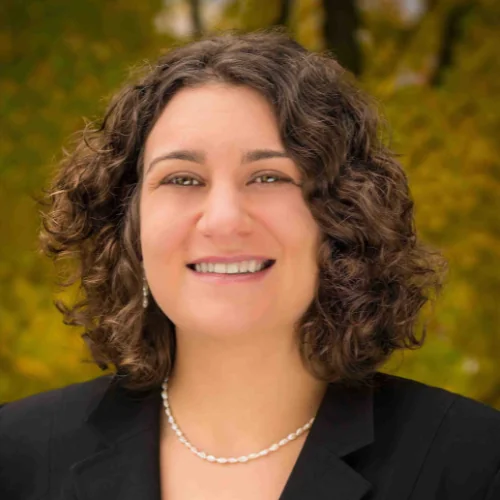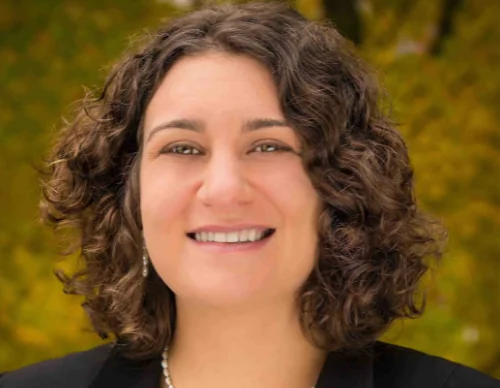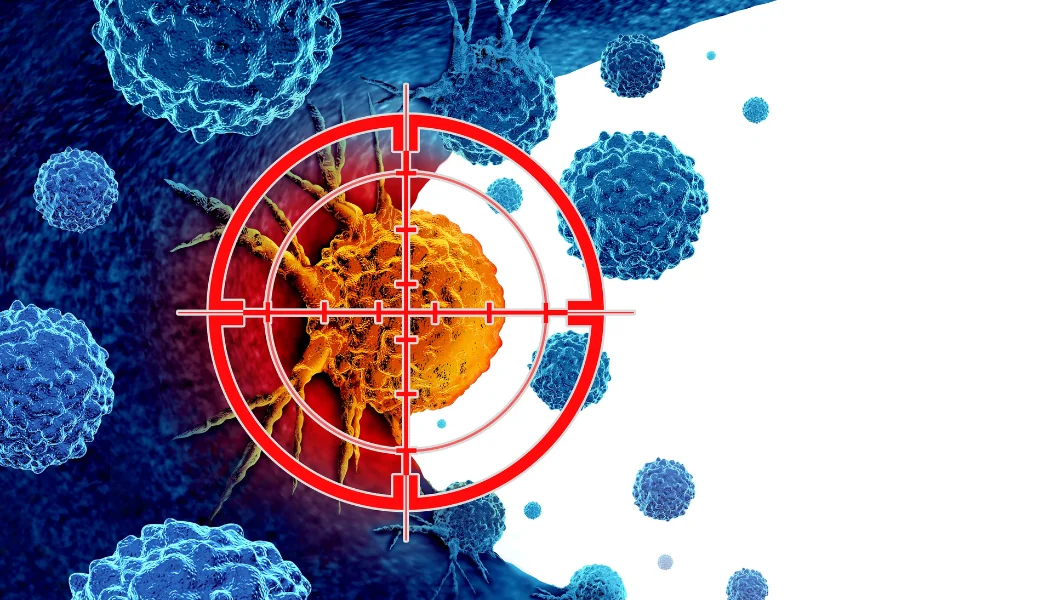University of Maryland School of Medicine
Institute for Genome Sciences
Baltimore, Maryland
Cancer-Types Supported
Click a cancer type below to learn more:
Credentials
Director, Institute for Genome Sciences
Dean’s Endowed Professor, University of Maryland School of Medicine
Professor of Medicine, University of Maryland School of Medicine

Research Projects
Dr. Elana Fertig’s research develops computational methods for a systems biology approach to model the response and resistance to cancer therapies for applications in precision medicine.
She is collaborating with NFCR-supported scientist, Dr. Lisa Coussens. Their research is identifying and validating signatures of different cell states to predict a patient’s response to four different therapies administered sequentially to treat triple negative breast cancer (TNBC), the most difficult-to-treat breast cancer.
Dr. Fertig’s expertise in single-cell multi-omics algorithm development and their application to analysis of molecular/cellular pathways of therapeutic response/resistance in cancer will facilitate the uncovering of the molecular and cellular mechanisms underlying response and resistance to immunotherapy.
IMPACT
This collaborative research will help stratify patients and guide precision delivery of immunotherapy and monitor patient’s response and resistance to therapy. Importantly, these approaches will be applicable across cancer types beyond TNBC.
Background
Dr. Elana Fertig is Director of the Division of Quantitative Sciences, and Associate Director for Quantitative Sciences at Johns Hopkins University Sidney Kimmel Comprehensive Cancer Center, and holds joint appointments in Applied Mathematics and Statistics and Biomedical Engineering.
Elana Fertig received her bachelor of science in physics and mathematics at Brandies University in 2003 and her Ph.D. in applied mathematics at University of Maryland, College Park in 2007. She joined Johns Hopkins University in 2010 as an Instructor in Dept. of Oncology.
Her lab has pioneered non-negative matrix factorization and transfer learning for single-cell multi-omics, and is recognized for blending mathematical modeling and artificial intelligence for applications to precision medicine. These computational techniques have broad applicability spanning beyond cancer to developmental biology and neuroscience. Prior to entering the field of cancer systems biology, Dr. Fertig was a NASA Research Fellow in Numerical Weather Prediction.
Dr. Fertig serves on the Scientific Advisory Board of Cell Systems and the editorial boards of PLoS Computational Biology, Cancer Research Communications, and eLife. Dr. Fertig’s research accomplishments have been acknowledged as the Daniel Nathans Scientific Investigator at Johns Hopkins University, winner of the HPN-DREAM8 Challenge, and in Nature Methods Method of the Year 2020.
Collaborator:
Our approach emphasizes a collaborative, team environment to accelerate new breakthroughs.
Accelerate innovative research like this and help save cancer patient lives.
Research Focus Areas
Select a Focus Area Below to learn more and see others working in these area.















